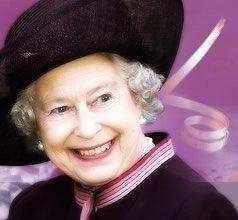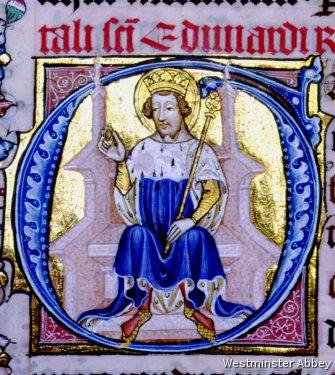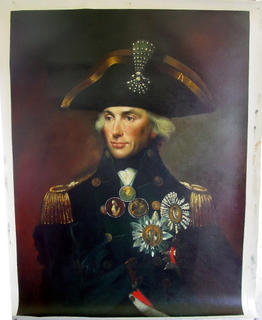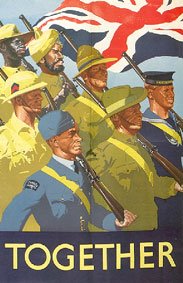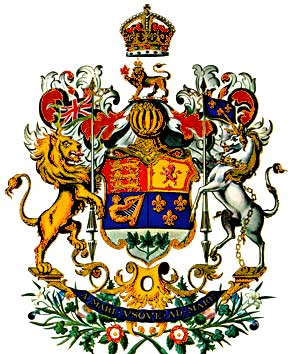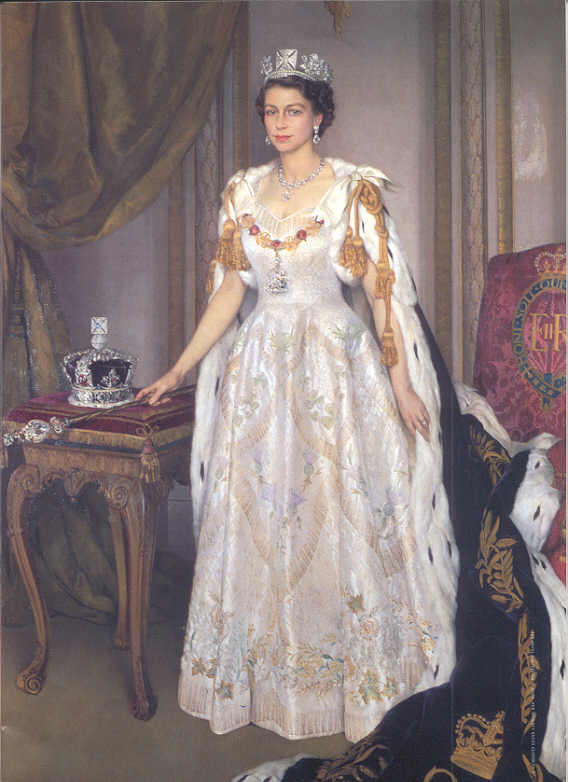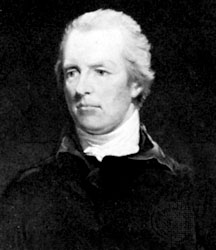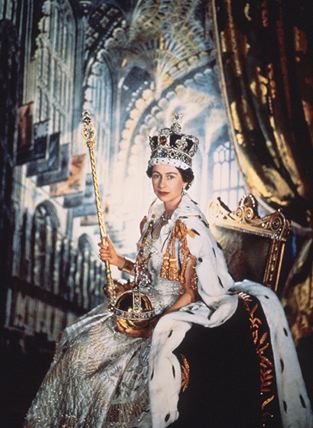[+] HONOURING OUR PATRON, SIR WINSTON CHURCHILL, VICTOR OF THE ENGLISH-SPEAKING PEOPLES
[+] HONOURING OUR QUEEN, ELIZABETH THE SECOND, ON THE 80TH YEAR OF HER BIRTH (1926 - 2006)
[+] HONOURING OUR KING, SAINT EDWARD THE CONFESSOR, ON THE 1000TH YEAR OF HIS BIRTH (1005 - 2005)
[+] HONOURING OUR HERO, LORD NELSON, ON THE BICENTENNIAL OF THE BATTLE OF TRAFALGAR (1805 - 2005)
[+] HONOURING OUR SONS, THE QUEEN'S COMMONWEALTH SOLDIERS KILLED IN THE 'WAR ON TERROR'
[+] HONOURING OUR VETS ON THE 150TH ANNIVERSARY OF THE VICTORIA CROSS (1856 - 2006)
In the first of a two part series, The Monarchist takes a serious look at revitalizing the future of the greater Commonwealth and why it matters. Written by James Pillman, who has granted us publishing permission for both pieces, we learn that President Bush has reportedly expressed interest in the United States joining the mostly republican English-speaking organization, and what this would mean if they did. Principled die-hards on both sides will object, but it’s time we took the broader view of the future and of an organization that has long outlived its usefulness as a vehicle for promoting pan-Britannic patriotic sentiment.
 James C. Bennett's concept of the Anglosphere is probably the most original, far-sighted geopolitical idea of the new century. Introduced a few days after the millenium in the National Post, it has attracted a slew of proponents around the world. Like-minded thinkers include Mark Steyn, John O'Sullivan, Paul Johnson, Robert Conquest among many others. Mr. Bennett defines the Anglosphere as the English-speaking, Common Law nations with similar values such as freedom, democracy and a strong sense of individualism. He further defines it as "a network civilization without a corresponding political form" and divides it into a core (the US and the UK), a middle (Anglo-Canada, Australia, New Zealand, Ireland, South Africa) and a fringe ("the educated English-speaking populations of the Caribbean, Oceania, Africa and India").
James C. Bennett's concept of the Anglosphere is probably the most original, far-sighted geopolitical idea of the new century. Introduced a few days after the millenium in the National Post, it has attracted a slew of proponents around the world. Like-minded thinkers include Mark Steyn, John O'Sullivan, Paul Johnson, Robert Conquest among many others. Mr. Bennett defines the Anglosphere as the English-speaking, Common Law nations with similar values such as freedom, democracy and a strong sense of individualism. He further defines it as "a network civilization without a corresponding political form" and divides it into a core (the US and the UK), a middle (Anglo-Canada, Australia, New Zealand, Ireland, South Africa) and a fringe ("the educated English-speaking populations of the Caribbean, Oceania, Africa and India").But the Anglosphere might just have a nascent political form, namely the Commonwealth of Nations. The Commonwealth evolved out of the British Empire and dates back to 1931 when the Statute of Westminster conferred equality between the UK and six self-governing Dominions. The Commonwealth now counts 53 freely associatad members totalling nearly two billion inhabitants. The head of the Commonwealth remains the British monarch and it has a permanent Secretariat in London. It's heads of government meet every two years and it's athletes meet every four years at the Commonwealth Games, the world's second largest multi-sport event after the Olympics. There is a Commonwealth Flag, a Commonwealth Business Council, a Commonwealth Writers Prize (plus the Booker Prize), even a Commonwealth Day, the second Monday in March. In short, the Commonwealth matters.
So can the present-day Commonwealth double for the Anglosphere? No it can't, for two reasons. First, the Commonwealth contains only a minority of the world's Engish-speaking people. And second, its members are overwhelmingly poor, with 94% of it's population living in the developing world. But if the US and the eight other non-Commonwealth English-speaking nations were to join, this revitalized entity would contain the vast majority of the world's English-speakers and nearly triple its developed, First World population. This new 21st century Commonwealth might then also be known as the Greater Anglosphere (GA).
The six-continent, 62 nation GA would have over 30% of the world's land area (minus Antarctica), 35% of its population and 40% of the Gross World Product. It would also account for nearly 60% of the world's military spending and four out of seven of the world's declared nuclear-weapons states. A GA, anchored by the US and India, working towards ever closer political, economic, security and developmental co-operation, would likely be the world's most powerful all-purpose alliance. It would be able to hold its own within various international institutions, and prevent its smaller members from being dominated or bullied by outside powers.
And compared to the rest of the world, the GA would be a beacon of liberty. According to Freedom House, 67% of the GA's population live in free countries, 24% in partly free countries, and 9% in countries that are not free. This is including unfree nations such as Pakistan and Zimbabwe that are probably best left inside the GA and encouraged to reform, rather than be expelled. As for the rest of the world, 34% are free, 14% partly free, and a whopping 52% are not free. And while 87% of the people in the GA live in electoral democracies, only 43% of the rest of the world have that privilege.
Of course there are great differences within the GA. Levels of income and unemployment, literacy and life-expectancy vary from among the highest to the lowest in the world. And there is certainly no common ethnicity in the GA. Virtually every race, religion and linguistic group on the planet is represented. But the Britannic inheritance of freedom and democracy are enjoyed by large majorities of GA citizens, and hoped for by much of the rest. Other commonalties include the 91% of people who live in countries where English is, de jure or de facto, the official language. And the 99% of people living within legal systems wholly or partially derived from the Common Law. Of course an ultimate goal of the GA should be for 100% of its population to live in free and democratic English-speaking Common Law nations, but there is a solid base to build from.
At present, the Commonwealth is considering membership applications from such unlikely nations as Cambodia, Yemen and Palestine. At the same time some pundits are proposing "membership" in the Anglosphere for Japan, Taiwan and Israel. Alas, it seems as if the Commonwealth and the Anglosphere are drifting apart rather than merging together. All these nations should be rejected for the simple reason that none of them are (officially) English-speaking. For the English language must surely remain the primary raison d'etre of the Anglosphere. And the future of English as the world-dominant language is by no means assured. As the 21st century moves forward, it will be challenged by, among others, Mandarin Chinese, Spanish and Arabic. The Commonwealth should not repeat it's mistake of 1995, when it admitted Portuguese-speaking Mozambique.
The US joining the Commonwealth would be a world-historic event. The prospect of America joining an organization headed by the Queen of England more than two centuries after the Revolution might raise some hackles, but it would herald the arrival of the Anglosphere as a concrete institution rather than a nebulous abstraction. It would also further solidify the emerging US-India alliance. In a world breaking up into political-economic blocs often based on nothing more than geography, the GA would represent a transcontinental association based on language, law and liberty. George W. Bush has reportedly expressed interest in joining the Commonwealth, and all US politicians should be encouraged to make it happen.
Sometime in the coming decades China will overtake the US and become the world's dominant economy. China is a totalitarian state where basic freedoms and the rule of law are a joke. It supports and will likely continue to support dictatorships around the world, while undermining fledgling democracies, including ones in the GA. The English-speaking peoples have faced down tyrannies before, from Napoleonic France to Nazi Germany to Soviet Russia, and we will do it again with China and its unfree fellow-travellers. But we'll need a worldwide alliance, a 21st century Commonwealth, a Greater Anglosphere to ensure our eventual victory. So that this century may end how it began, with English-speaking liberal democracy under the Common Law continuing to enlighten the world.


